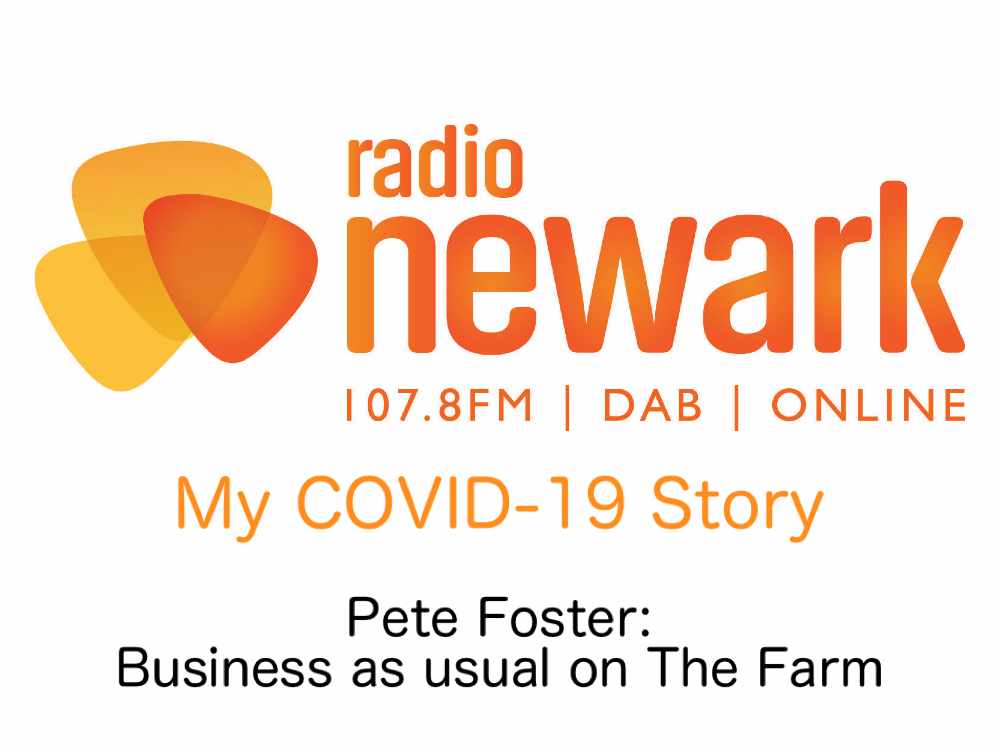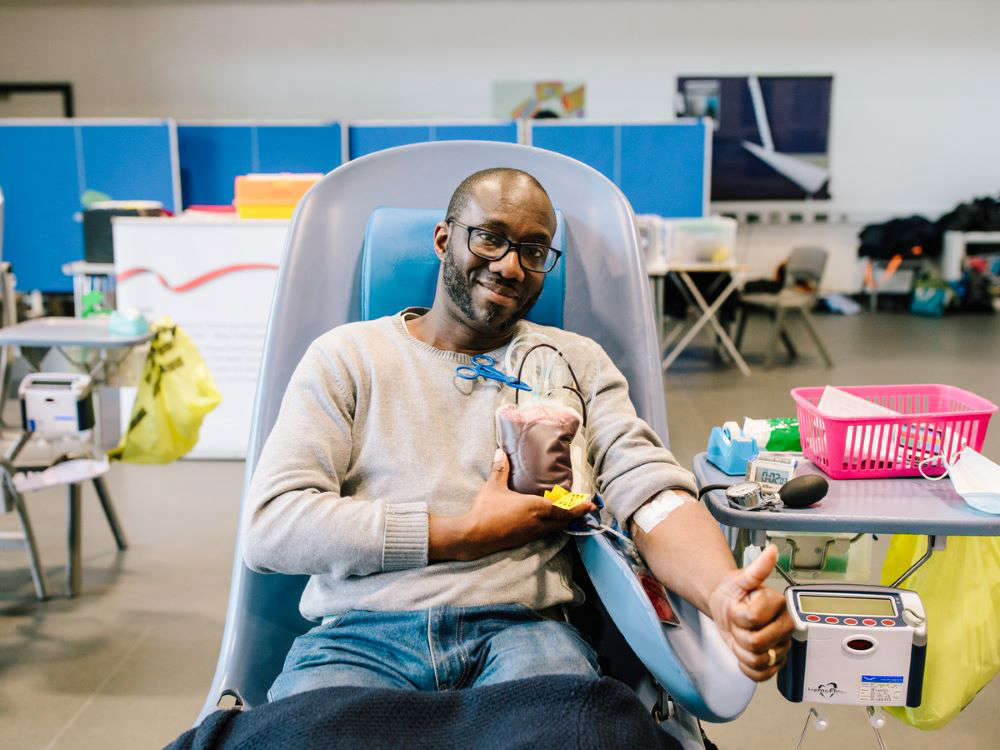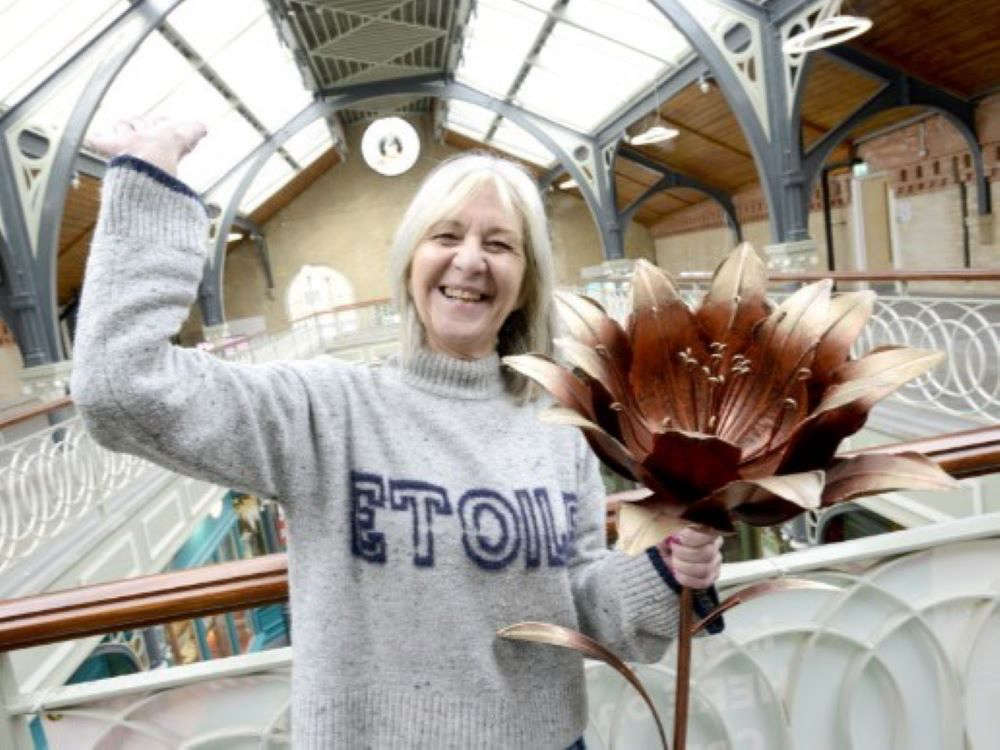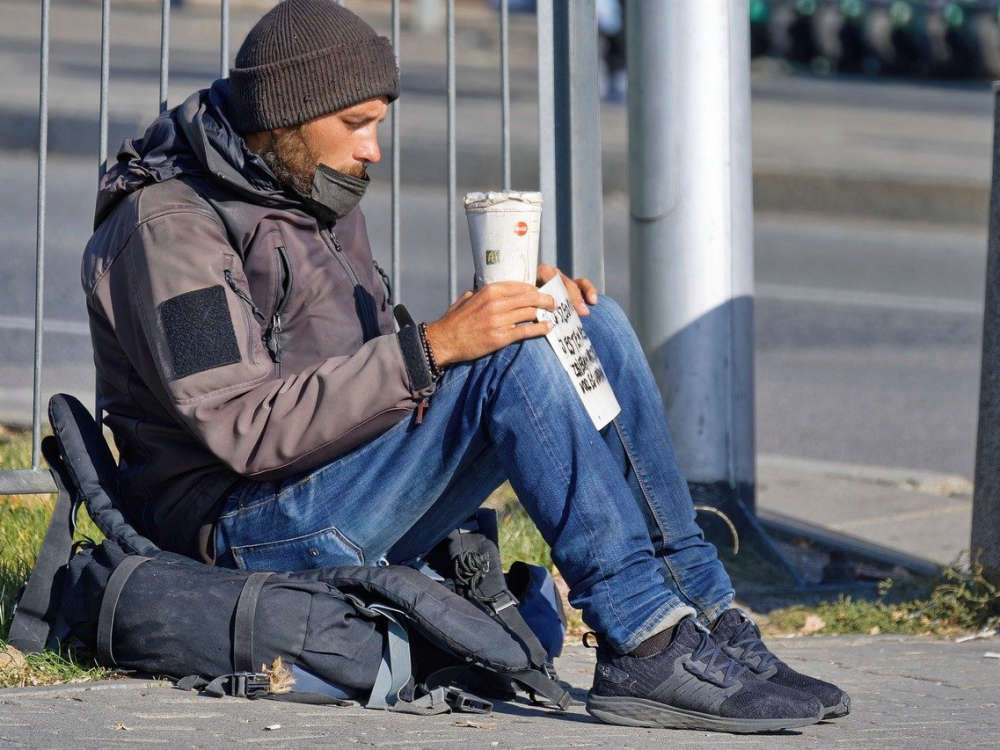
Local farmer, Pete Foster, shares with us how the farming community are handling life during the COVID-19 pandemic, and gives us an insight into life on the farm.
The iconic cobbles of Newark have never experienced such calm. In the depths of May, they’ve previously been prepared for the trampling of sandal-clad-feet. Their surface has only been lightly tapped this year, and if you thought you saw each cobble all dressed up in a layer of dust, you might not be wrong. Unbothered, St Mary Magdalene’s bells echo across our town, an hourly reminder that humans still exist outside of our homes.
For those of us who reside in towns and cities, the silence of lockdown has been an incomparable existence. We exchange guilty smiles with those we know across a Government monitored perimeter, tight-squeezy hugs for our achy hearts taunt us like the smoking area of a quitter’s coffee break. Even the sun tempts us, wedging golden rays between our blinds each morning, a crooked witchy finger beckoning for us to come out and warm our cheeks.
Individually, we are all beginning to settle into the routines of our new lives. Our voices have adjusted to a higher volume so we can exchange our ‘good morning’s’ across a two-metre gap, whilst our eyes are able to express more love than ever before. When it comes to work, some of us can work from home, some are still out as normal, and some can’t work at all. As a journalist, face-to-face interviews are no longer feasible and “can we video call or is that not your cup of tea?” has cemented itself as my new catchphrase.
Last Saturday, I sat down at the desk in my spare room with a cup of coffee and dialled an unfamiliar number. The kind voice of Pete Foster, a 62-year-old local farmer, sprayed from my speakers and matched the warm glow of the sun that filled the room. From his farm of 150 acres out in Rolleston, he gently and accidentally made me aware of my ignorance to assume that life has halted for everyone around us. For Pete, life is still exactly the same.
“We’ve just sort of carried on as normal, things have carried on the same as always. Obviously at market, there’s social distancing measures but everything for us has stayed the same,” Pete shares. He had already warned me that I might not find this interview very interesting, as not much has changed for the farming community. Pete still wakes up each morning and is out on the farm by 6am, spending his days picking and planting with his wife Claire. On market days, he’s in Nottingham for 4am and then returns home to carry out the farm work for the day. And, as Sunday afternoon rolls around, Pete has ensured that you can enjoy his vegetables on your roast.
Key workers of another kind, the farming community have kept us all well fed throughout the pandemic. COVID-19 has meant that many of us have started relying more on local shops and traders, testing out vegetable boxes and milk delivery services to help aid social distancing. “I’m sort of hoping that we’ll keep some of the customers who have moved away from supermarkets to small local shops, I hope people remember the local traders and carry on using them,” Pete tells me, highlighting how our towns seem to have time travelled backwards and away from mass retailers and the big companies. A strong message has carried throughout the lockdown period: ‘Shop local and help small businesses.’ It’s Pete and the farming community who will benefit from this mindset.
For a lot of us, lockdown has meant a lack of socialisation that has bundled us up in a blanket of loneliness, aching for human interaction. For Pete and Claire, tucked away in the nooks of our countryside, the lack of people around has just made for quicker journeys to market and back. Pete tells me: “When you live on a farm, you’re already social distancing, you regularly go a day without seeing anyone else. Sat in fields all day in a tractor cab you usually are on your own, and we’re lucky because the farming community are used to it and don’t mind it.” It’s a peaceful existence that many might dream of - Pete, his wife and his Spaniel, with his daughters and grandchildren close by. Whilst it may sound picturesque, it’s Pete’s hard slog and dedication to his work that keeps us town-dwellers well fed.
“I never thought about doing anything else at all, much to my teachers’ disappointment!” Pete laughs down the phone, a contagious smile delivered in his words and now I’m laughing too. Inheriting his trade from his father, and his grandfather before that, Pete bares no resentment towards his pre-planned career route. “It’s not a job, it’s a way of life,” he adds, touching on an idea that becomes more apparent the more we talk. Pete doesn’t seem to realise his own importance, his work is vital and without him and the farming community, we’d be lacking in many important supplies. To him, this is what he loves to do and has always done, and he wouldn’t have it any other way.
“My earliest memory of the farm is picking daffodils after school and in the holidays, it’s the first job I was able to do. For a bunch, I’d make one penny and I’d have to pick 240 bunches for a pound back then,” he shares, leaving me with an image of a small but smiley boy, roaming acres of daffodils for his pocket money. It’s an image that wouldn’t seem out of place in COVID-19 Britain, as children are once again introduced to the delights of the outdoors. When endless video games and home-schooling grew stale, many families savoured their daily exercise allowance and spent it wisely on long walks in the Spring sun. On my own walk that afternoon, I plucked a wildflower from the grass and imagined picking 239 more to afford the ice cream in my hand. It’s a way of life most of us have never experienced, but the pandemic has stripped us back to enjoy the peaceful life that the farming community have relished forever.
As time moves forward, it’s interesting to imagine how the pandemic will be remembered and reflected upon in the future. “For us, we’ll look back at these things and think ‘well that happened’ and we just carried on as normal. It’s been a weird sensation; we’ve seen it all on the news but we’re just working as usual. You can’t really believe all these things are going on,” Pete says, furthermore consolidating the idea that he isn’t aware of what a hero he’s been through these trying times. His untroubled attitude towards the quietness of our lockdown is something we can all be jealous of, it’s an inspiration for us to take a little more joy in our own company and the anticipation of being reunited with normalcy.
As we slip into an easy and interesting conversation, I became aware that the sun gazing through my window has moved across my wall. It’s apparent now, that Pete and I have been chatting for a while. As we talk, Pete hints at the safeness he finds out in the countryside. “You talk to old farmers who lived through the second world war and they’ll tell you, it never affected us down on the farms, not much happened in the countryside compared to the towns,” he comments, and I get the sense he’s still trying to play down his continued hard work. Precedented safety or not, the farming community are still one of the biggest pillars in our society, and without them we’d be lost.
Exchanging our farewells and thanks, I ask Pete what he’ll be doing when the lockdown is eased. “I can live without a haircut,” he shares, passing me a contagious laugh through the phone again, “I’ll be riding out with the wife, for a nice meal out.” I smile as I end the call, I hope it is a nice meal. They deserve it.


 Could you be a blood donor?
Could you be a blood donor?
 Radio Newark on DAB Digital Radio.
Radio Newark on DAB Digital Radio.
 Newark jam-packed with events this spring and summer
Newark jam-packed with events this spring and summer
 StreetLink support for rough sleepers in Newark and Sherwood
StreetLink support for rough sleepers in Newark and Sherwood